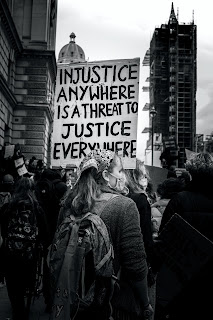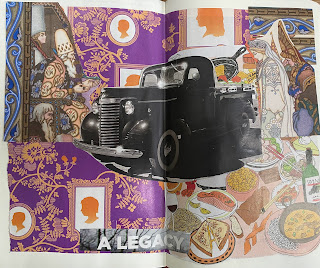Day 97 – “Toward a decolonial model of well-being” – Raúl Quiñones-Rosado
 |
| Photo by Jack Skinner on Unsplash |
Common to these non-Western paradigms for well-being, human beings are conceived
as integral to, and in a sustainable relationship with, all other beings, elements, the Earth itself, and beyond. Human well-being occurs in the context of, and is dependent on, an individual’s personal and a people’s collective ability to meet challenges and adversities in their environment through the intelligent, skillful, and ethical use of strengths and resources available to them. Person and community coexist—dynamically, interdependently, and integrally. (p. 54)
Quiñones-Rosado is suggesting that one way to begin to practice a decolonial approach to liberation psychology is by recognizing models of “well-being, conceptions, frameworks, and worldviews” held by native and indigenous peoples.
I was particularly moved by this next paragraph, as I thought about the “patriarchic, distorted Christian fundamentalist, and Euro-feudal politico-militaristic traditions” that are currently driving the Supreme Court’s decisions – particularly the reversal of Roe v Wade.
The shared history that most directly frames our capacity for integral wellbeing today is the history of colonialism. The colonial projects of Europe in the Americas not only imposed a race-based economic system founded on patriarchic, distorted Christian fundamentalist and Euro-feudal politico-militaristic traditions, it also imposed Eurocentric epistemologies and axiologies (Ani, 1994; Dussel, 2000; Maldonado-Torres, 2007; Mignolo & Walsh, 2018; Quijano, 2014) that have, to this day, subordinated, if not kept hidden, worldviews, systems of knowledge, and ways of life that could be conducive to the integral well-being of all people.
It is in this context that racism, as a central force within that colonial project that persists to this day, continues to be an assault on humanity and a hindrance to buen vivir. (Quiñones-Rosado, 2020, pp. 56-57)
Quiñones-Rosado, R. (2020). Liberation psychology and racism. In L. Comas-Díaz & E. Torres-Rivera (Eds.), Liberation psychology: Theory, method, practice, and social justice. (pp. 53–68). American Psychological Association.


Comments